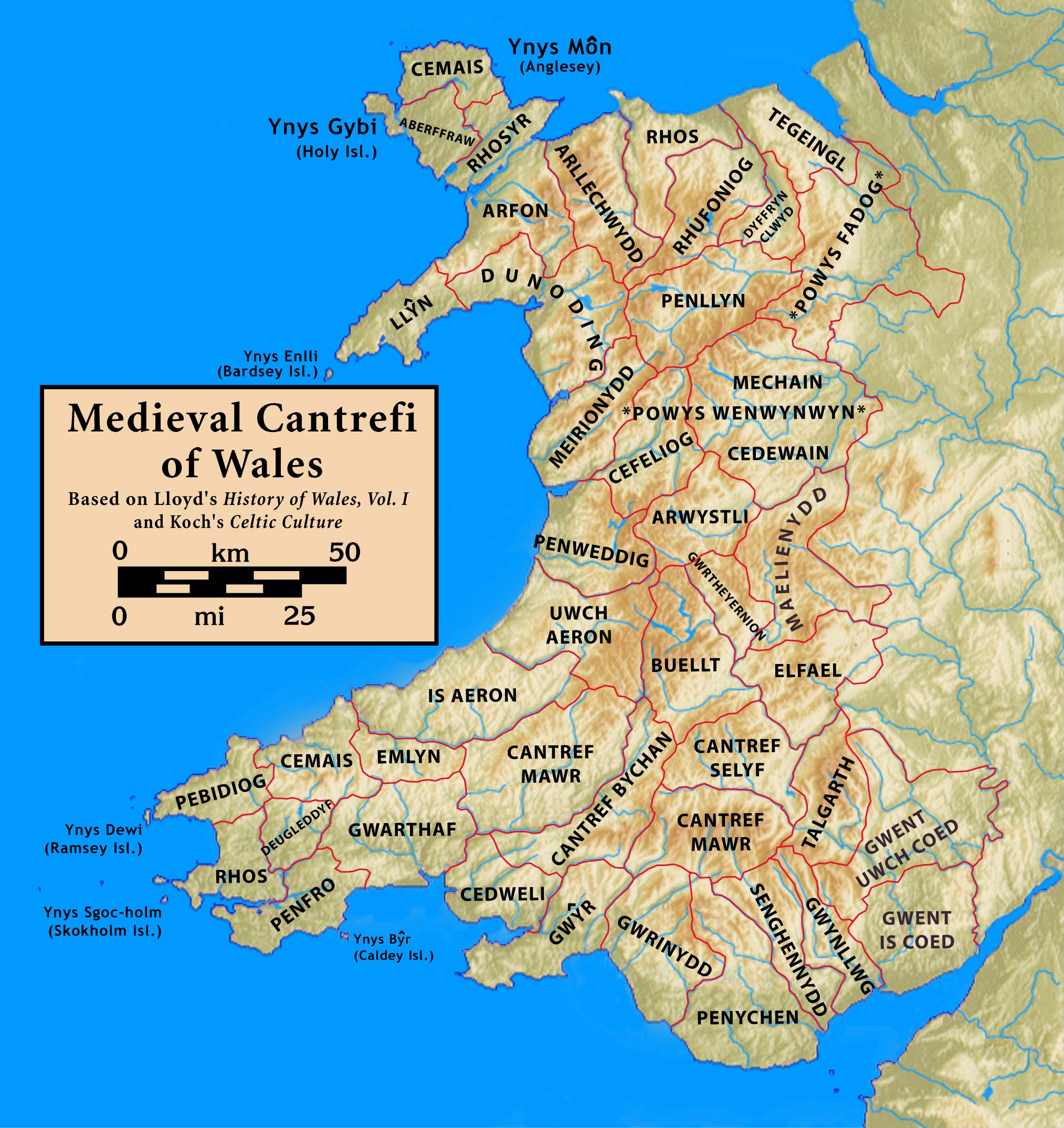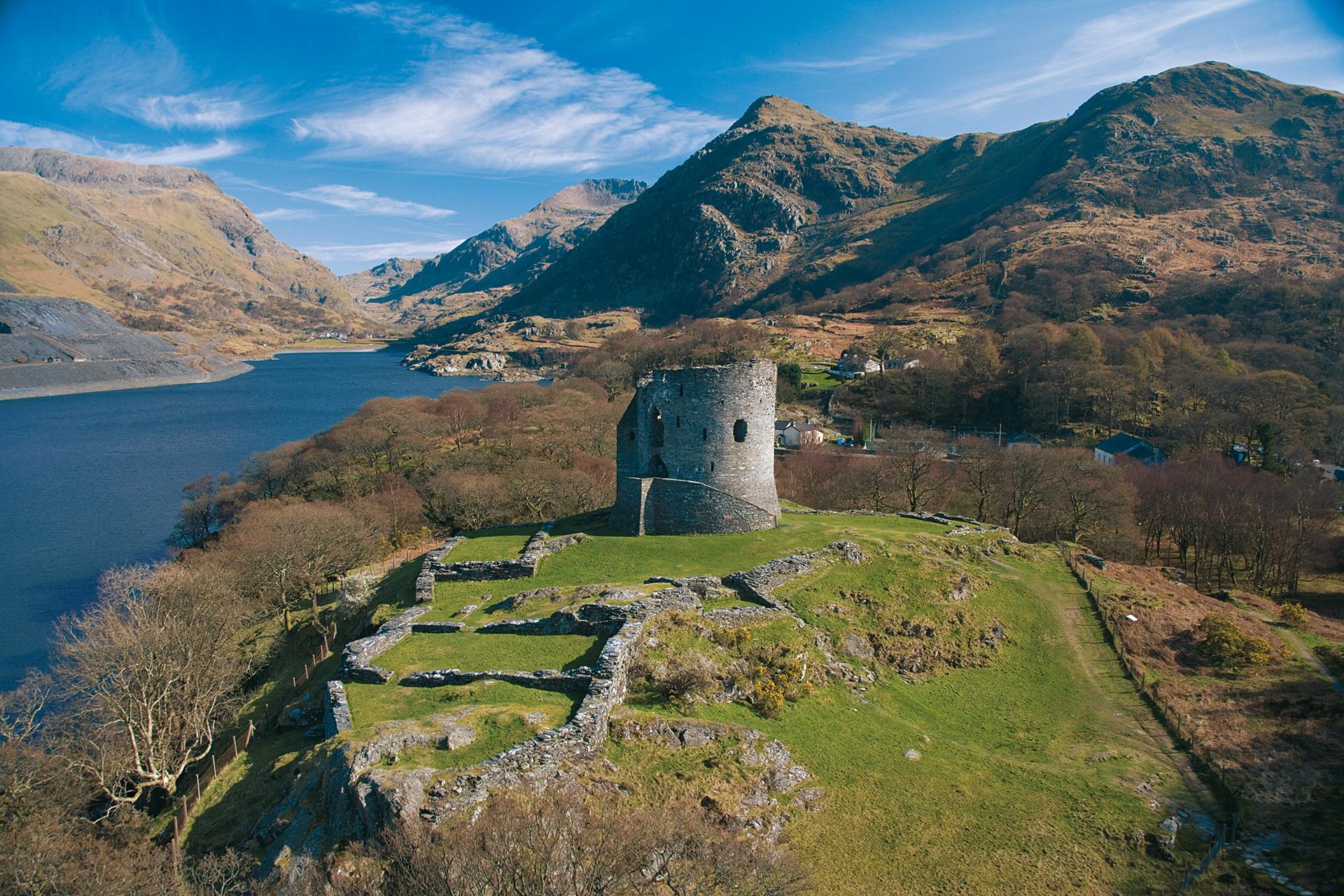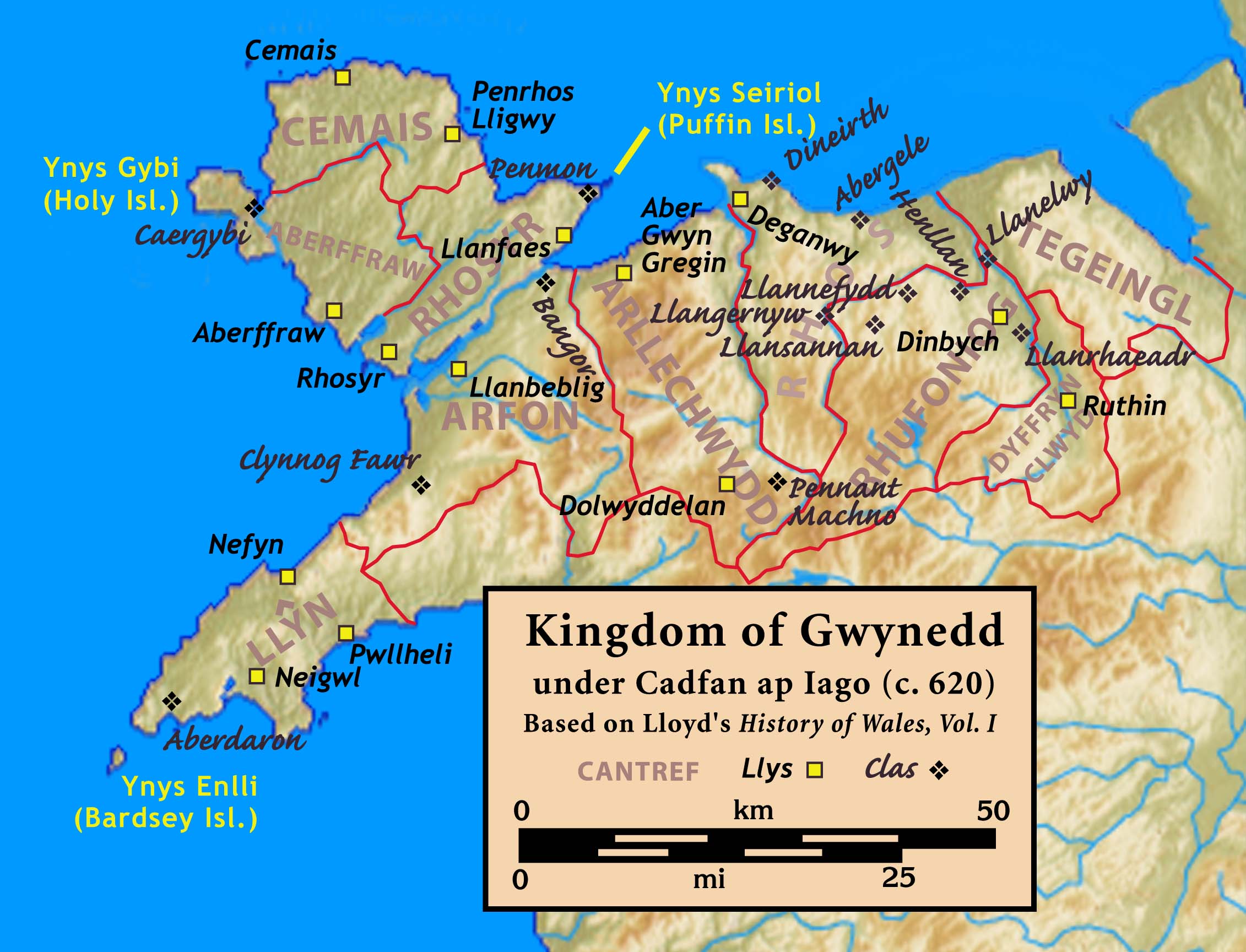|
Battle Of Bryn Derwin
The Battle of Bryn Derwin was fought in Eifionydd in Gwynedd in June 1255, between Llywelyn ap Gruffudd and his brothers, Dafydd ap Gruffudd and Owain Goch ap Gruffydd Llywelyn had ruled over a truncated Kingdom of Gwynedd jointly with Owain since the death of the previous Prince of Wales Prince of Wales ( cy, Tywysog Cymru, ; la, Princeps Cambriae/Walliae) is a title traditionally given to the heir apparent to the English and later British throne. Prior to the conquest by Edward I in the 13th century, it was used by the ruler ..., Dafydd ap Llywelyn, in 1246, but relations between the two men apparently deteriorated in the early 1250s. The battle lasted for no more than an hour, and resulted in a victory for Llywelyn; Dafydd and Owain were both imprisoned. Owain died in prison around 1282, but Dafydd was soon released and went on to play a central role in the royal government of Gwynedd until his defection and subsequent removal to England in the mid-1260s. Subseque ... [...More Info...] [...Related Items...] OR: [Wikipedia] [Google] [Baidu] |
Eifionydd
Eifionydd () is an area in north-west Wales covering the south-eastern part of the Llŷn Peninsula from Porthmadog to just east of Pwllheli. The Afon Erch forms its western border. It now lies in Gwynedd. The commote of Eifionydd formed the northern half of the former minor kingdom of Dunoding within the Kingdom of Gwynedd. It traditionally took its name from Eifion, son of Dunod (who gave his name to the cantref) and grandson of Cunedda Wledig. The chief centre of the commote was at Criccieth, although there may have been an earlier royal residence at Dolbenmaen. Although it is not currently a unit of local government, the name is still in common use for the region. It includes the villages of Chwilog, Abererch, Llanaelhaearn, Pencaenewydd, Llangybi, Llanystumdwy, Llanarmon, Rhoslan, Pentrefelin, Penmorfa, Garndolbenmaen, Bryncir and Pantglas. R. Williams Parry's poem ''Eifionydd'' contrasts rural Eifionydd with the bustling slate quarries of Dyffryn Nantlle ... [...More Info...] [...Related Items...] OR: [Wikipedia] [Google] [Baidu] |
Gwynedd
Gwynedd (; ) is a county and preserved county (latter with differing boundaries; includes the Isle of Anglesey) in the north-west of Wales. It shares borders with Powys, Conwy County Borough, Denbighshire, Anglesey over the Menai Strait, and Ceredigion over the River Dyfi. The scenic Llŷn Peninsula and most of Snowdonia National Park are in Gwynedd. Bangor is the home of Bangor University. As a local government area, it is the second largest in Wales in terms of land area and also one of the most sparsely populated. A majority of the population is Welsh-speaking. ''Gwynedd'' also refers to being one of the preserved counties of Wales, covering the two local government areas of Gwynedd and Anglesey. Named after the old Kingdom of Gwynedd, both culturally and historically, ''Gwynedd'' can also be used for most of North Wales, such as the area that was policed by the Gwynedd Constabulary. The current area is , with a population of 121,874 as measured in the 2011 Censu ... [...More Info...] [...Related Items...] OR: [Wikipedia] [Google] [Baidu] |
Llywelyn Ap Gruffudd
Llywelyn ap Gruffudd (c. 1223 – 11 December 1282), sometimes written as Llywelyn ap Gruffydd, also known as Llywelyn the Last ( cy, Llywelyn Ein Llyw Olaf, lit=Llywelyn, Our Last Leader), was the native Prince of Wales ( la, Princeps Walliae, links=no; cy, Tywysog Cymru, links=no) from 1258 until his death at Cilmeri in 1282. Llywelyn was the son of Gruffydd ap Llywelyn Fawr and grandson of Llywelyn the Great, and he was one of the last native and independent princes of Wales before its conquest by Edward I of England and English rule in Wales that followed, until Owain Glyndŵr held the title during the Welsh Revolt of 1400–1415. Genealogy and early life Llywelyn was the second of the four sons of Gruffydd, the eldest son of Llywelyn the Great, and Senana ferch Caradog, the daughter of Caradoc ap Thomas ap Rhodri, Lord of Anglesey. The eldest was Owain Goch ap Gruffydd and Llywelyn had two younger brothers, Dafydd ap Gruffydd and Rhodri ap Gruffydd. Llywelyn is ... [...More Info...] [...Related Items...] OR: [Wikipedia] [Google] [Baidu] |
Dafydd Ap Gruffudd
Dafydd ap Gruffydd (11 July 1238 – 3 October 1283) was Prince of Wales from 11 December 1282 until his execution on 3 October 1283 on the orders of King Edward I of England. He was the last native Prince of Wales before the conquest of Wales by Edward I in 1283 and English rule in Wales that followed, until Owain Glyndŵr held the title during the Welsh Revolt of 1400–1415. Early life He was a prince of Gwynedd, a younger son of Gruffudd ap Llywelyn and his wife, Senena, and thus grandson of Llywelyn Fawr. In 1241, he is recorded as having been handed over to Henry III of England as a hostage with his younger brother, Rhodri, as part of an agreement. He may have come of age under Welsh law on 11 July 1252, on which date he issued, in front of his mother, Senena, and the Bishop of Bangor, a charter as lord of the commote of Cymydmaen, at the outer reaches of the Llŷn Peninsula. In 1253, he was called upon to pay homage to King Henry III of England. In 1255, he joined h ... [...More Info...] [...Related Items...] OR: [Wikipedia] [Google] [Baidu] |
Owain Goch Ap Gruffydd
Owain ap Gruffudd (also known as ''Owain Goch'' wain the Red (died 1282) was brother to Llywelyn ap Gruffudd and Dafydd ap Gruffudd and, for a brief period in the late 1240s and early 1250s, ruler of part of the Kingdom of Gwynedd (in modern-day north Wales). Lineage Owain was the eldest son of Gruffudd ap Llywelyn and the grandson of Llywelyn the Great. He was imprisoned together with his father in Criccieth Castle in 1239 by his uncle Dafydd ap Llywelyn, and accompanied his father to England two years later when Dafydd was forced to hand Gruffudd over to King Henry III of England. In 1244 Gruffudd was killed when a makeshift rope broke as he attempted to escape from the Tower of London. This freed Dafydd ap Llywelyn's hand as King Henry could no longer use Gruffudd against him, and war broke out between him and King Henry in the spring of 1244. Owain meanwhile had been freed by Henry after his father's death in the hope that he would start a civil war in Gwynedd, but he re ... [...More Info...] [...Related Items...] OR: [Wikipedia] [Google] [Baidu] |
Kingdom Of Gwynedd
The Kingdom of Gwynedd (Medieval Latin: ; Middle Welsh: ) was a Welsh kingdom and a Roman Empire successor state that emerged in sub-Roman Britain in the 5th century during the Anglo-Saxon settlement of Britain. Based in northwest Wales, the rulers of Gwynedd repeatedly rose to dominance and were acclaimed as " King of the Britons" before losing their power in civil wars or invasions. The kingdom of Gruffydd ap Llywelynthe King of Wales from 1055 to 1063was shattered by a Saxon invasion in 1063 just prior to the Norman invasion of Wales, but the House of Aberffraw restored by Gruffudd ap Cynan slowly recovered and Llywelyn the Great of Gwynedd was able to proclaim the Principality of Wales at the Aberdyfi gathering of Welsh princes in 1216. In 1277, the Treaty of Aberconwy between Edward I of England and Llewelyn's grandson Llywelyn ap Gruffudd granted peace between the two but would also guarantee that Welsh self-rule would end upon Llewelyn's death, and so it represen ... [...More Info...] [...Related Items...] OR: [Wikipedia] [Google] [Baidu] |
Prince Of Wales
Prince of Wales ( cy, Tywysog Cymru, ; la, Princeps Cambriae/Walliae) is a title traditionally given to the heir apparent to the English and later British throne. Prior to the conquest by Edward I in the 13th century, it was used by the rulers of independent Wales. The first native Welsh prince was Gruffudd ap Cynan of Gwynedd, in 1137, although his son Owain Gwynedd (Owain ap Gruffudd) is often cited as having established the title. Llywelyn the Great is typically regarded as the strongest leader, holding power over the vast majority of Wales for 45 years. One of the last independent princes was Llywelyn ap Gruffydd (Llywelyn the Last), who was killed at the Battle of Orewin Bridge in 1282. His brother, Dafydd ap Gruffydd, was executed the following year. After these two deaths, Edward I of England invested his son Edward of Caernarfon as the first English prince of Wales in 1301. The title was later claimed by the heir of Gwynedd, Owain Glyndŵr (Owain ap Gruffydd), f ... [...More Info...] [...Related Items...] OR: [Wikipedia] [Google] [Baidu] |
Dafydd Ap Llywelyn
Dafydd ap Llywelyn (''c.'' March 1212 – 25 February 1246) was Prince of Gwynedd from 1240 to 1246. He was the first ruler in Wales to claim the title Prince of Wales. Birth and descent Though birth years of 1208, 1206, and 1215 have been put forward for Dafydd, it has recently been persuasively argued that he was born shortly after Easter 1212. Born at Castell Hen Blas, Coleshill, Bagillt in Flintshire, he was the only son of Llywelyn the Great by his wife, Joan (daughter of King John). His grandfather was facing trouble in England against his Barons when he was born. In his final years, Llywelyn went to great lengths to have Dafydd accepted as his sole heir. By Welsh law, Dafydd's older half-brother Gruffydd had a claim to be Llywelyn's successor. Llywelyn had Dafydd recognised as his named heir by his uncle King Henry III in 1220, and also had Dafydd's mother Joan declared legitimate by the Pope to strengthen Dafydd's claim. Conflict There was considerable s ... [...More Info...] [...Related Items...] OR: [Wikipedia] [Google] [Baidu] |
Battles Involving Wales
A battle is an occurrence of combat in warfare between opposing military units of any number or size. A war usually consists of multiple battles. In general, a battle is a military engagement that is well defined in duration, area, and force commitment. An engagement with only limited commitment between the forces and without decisive results is sometimes called a skirmish. The word "battle" can also be used infrequently to refer to an entire operational campaign, although this usage greatly diverges from its conventional or customary meaning. Generally, the word "battle" is used for such campaigns if referring to a protracted combat encounter in which either one or both of the combatants had the same methods, resources, and strategic objectives throughout the encounter. Some prominent examples of this would be the Battle of the Atlantic, Battle of Britain, and Battle of Stalingrad, all in World War II. Wars and military campaigns are guided by military strategy, whereas ba ... [...More Info...] [...Related Items...] OR: [Wikipedia] [Google] [Baidu] |
History Of Gwynedd
Gwynedd (; ) is a county and preserved county (latter with differing boundaries; includes the Isle of Anglesey) in the north-west of Wales. It shares borders with Powys, Conwy County Borough, Denbighshire, Anglesey over the Menai Strait, and Ceredigion over the River Dyfi. The scenic Llŷn Peninsula and most of Snowdonia National Park are in Gwynedd. Bangor is the home of Bangor University. As a local government area, it is the second largest in Wales in terms of land area and also one of the most sparsely populated. A majority of the population is Welsh-speaking. ''Gwynedd'' also refers to being one of the preserved counties of Wales, covering the two local government areas of Gwynedd and Anglesey. Named after the old Kingdom of Gwynedd, both culturally and historically, ''Gwynedd'' can also be used for most of North Wales, such as the area that was policed by the Gwynedd Constabulary. The current area is , with a population of 121,874 as measured in the 2011 Census. ... [...More Info...] [...Related Items...] OR: [Wikipedia] [Google] [Baidu] |
Conflicts In 1255
Conflict may refer to: Arts, entertainment, and media Films * ''Conflict'' (1921 film), an American silent film directed by Stuart Paton * ''Conflict'' (1936 film), an American boxing film starring John Wayne * ''Conflict'' (1937 film), a Swedish drama film directed by Per-Axel Branner * ''Conflict'' (1938 film), a French drama film directed by Léonide Moguy * ''Conflict'' (1945 film), an American suspense film starring Humphrey Bogart * ''Catholics: A Fable'' (1973 film), or ''The Conflict'', a film starring Martin Sheen * ''Judith'' (1966 film) or ''Conflict'', a film starring Sophia Loren * ''Samar'' (1999 film) or ''Conflict'', a 1999 Indian film by Shyam Benegal Games * ''Conflict'' (series), a 2002–2008 series of war games for the PS2, Xbox, and PC * ''Conflict'' (video game), a 1989 Nintendo Entertainment System war game * '' Conflict: Middle East Political Simulator'', a 1990 strategy computer game Literature and periodicals * ''Conflict'' (novel) ... [...More Info...] [...Related Items...] OR: [Wikipedia] [Google] [Baidu] |




